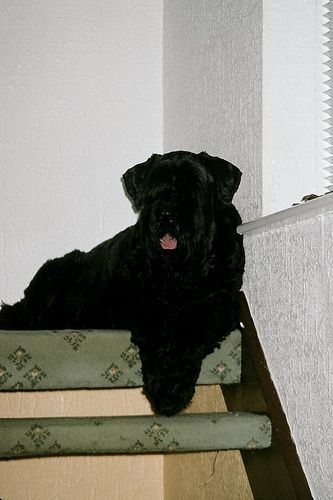
Choosing the right dog is essential if you are to gain a friend for life. Before you consider bringing a dog companion to your home, it is vital that you properly prepare and research so that you know exactly what you are letting yourself in for. (Photo Credit: Ferlinka Borzoi (Deb West)/Flickr )
First of all, you must be sure that you can afford the time, money and energy a dog needs - veterinary bills, food, insurance will all eat into your finances and you will need time for training and exercising your pet.
If you are fully prepared to take care of a dog then it's time to consider the type of dog that will suit you and your lifestyle.
Is Pedigree Better Than Crossbreed?
As to whether you choose a pedigree dog or a mixed breed, there are advantages and disadvantages to both. The advantage of buying a pedigree is that, in the main, you can be sure of the size it will grow to, the characteristics of the breed, coat type and length and its energy levels. On the other hand, due to their breeding, pedigree dogs can have tendencies towards specific health problems and it is important that you are aware of any potential problems before you buy.
Crossbred dogs, though sometimes unpredictable from a size and personality point of view, are less likely to fall victim to hereditary health problems. And if you are aware of the dog's parentage, it is sometimes possible to know what you can expect in terms of exercise needs and temperament.
Will Your Dog Match Your Lifestyle?
 Matching your dog to your lifestyle will help to ensure that you get a pet that will suit you and your family. For instance, some breeds fare particularly badly when left alone and can become destructive in the house. Others will happily lounge on the sofa until you come home from work. (Photo Credit: Lil Shepherd/Flickr )
Matching your dog to your lifestyle will help to ensure that you get a pet that will suit you and your family. For instance, some breeds fare particularly badly when left alone and can become destructive in the house. Others will happily lounge on the sofa until you come home from work. (Photo Credit: Lil Shepherd/Flickr )
Similarly, consider your family life - if you have young children in the house, obviously you will need to choose a breed that is happy-go-lucky and will put up with a hectic household without snapping or becoming nervous and unpredictable.
Then consider your living space. An urban apartment may be perfect for a small breed like Russian Toy Terrier or Bolonka, but some of the larger breeds like Borzoi or Black Russian Terrier will need plenty of room to move around and surrounding walks to burn off that energy, and a secure garden is recommended for any dog, especially the Caucasian Mountain Dog. However, don't be fooled by the size of the dog - greyhounds, for example, despite their speedy reputation, require comparatively little exercise, while a Jack Russell terrier will happily walk for several hours a day and still come back for more.
Should I Get My Puppy From Breeder or From a Rescue Center?
Time is needed to accommodate any puppy or an adult dog. Puppies require house training, general commands, socialisation and plenty of patience so if you choose to go to a breeder you must be prepared to invest lots of time to ensure that your pup grows into a well-rounded and reliable member of the family. And never buy a pup without seeing the mother or, if possible, both parents.
An adult dog, particularly if adopted from a rescue centre, will take some time to settle in and may present problem behaviours associated with its previous situation. Most rescue centres will be able to advise on a particular dog's needs as far as exercise and training go, and will often have an idea of whether the dog is suitable for a family home and so on. And remember, it's not just adult dogs that get abandoned, puppies are also sometimes available for rehoming so it is worth checking with your local centre.
After all... any rehomed dog is a life saved!
With the right research, buying a dog can provide you with a friend for life - if you want more advice about a specific breed, your vet or local kennel club should be able to help.
About the Author: Written by C. Cassidy
Leave a Reply